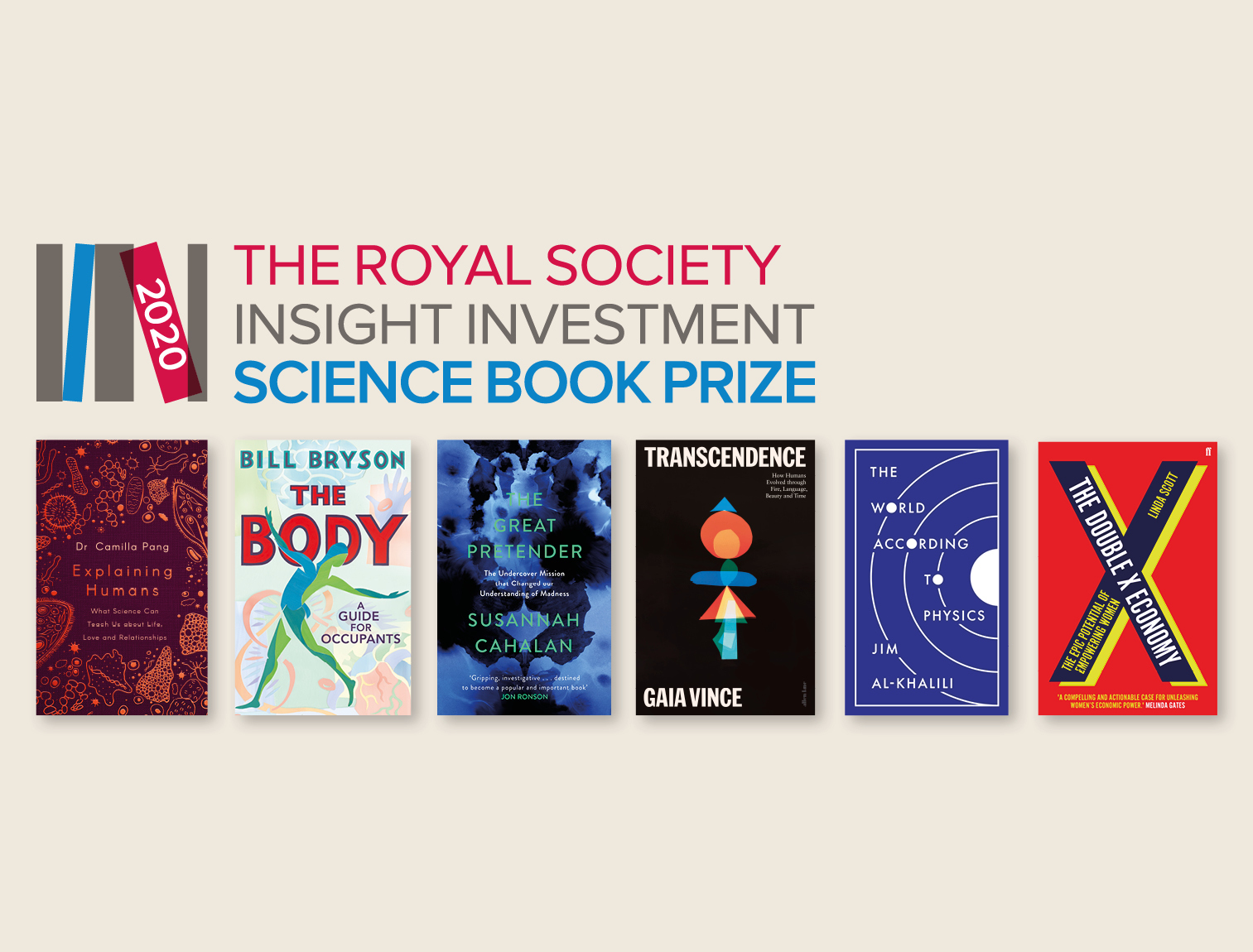Links to external sources may no longer work as intended. The content may not represent the latest thinking in this area or the Society’s current position on the topic.
Professor Brian Cox introduces the Science Book Prize

Join Professor Brian Cox as he introduces the shortlist for the 2020 Royal Society Insight Investment Science Book Prize.
Brian Cox, the Royal Society Professor for Public Engagement in Science and shortlisted authors Jim Al-Khalili, Bill Bryson, Susannah Cahalan, Camilla Pang, Linda Scott and Gaia Vince, will be discussing the unifying themes explored within the shortlisted books and the important role that science plays in our lives and in finding solutions to big, global challenges.
The event will be in two parts:
Panel 1 (7pm to 7.45pm): ‘The Beauty and Complexity of the Human Brain’
Professor Brian Cox - Host
Bill Bryson
Susannah Cahalan
Dr Camilla Pang
Panel 2 (7.45pm to 8.30pm): ‘Human and Social Dynamics: How we understand and engage with the world around us, from Evolution and Cosmology to Gender Inequality'
Professor Brian Cox - Host
Professor Jim Al-Khalili
Professor Linda Scott
Gaia Vince
The Royal Society Insight Investment Science Book Prize 2020 represents the very best in popular science writing from around the world for a non-specialist audience. The winner will be announced virtually on 3 November at 6pm.
Attending this event
- This event is hosted by Waterstones.
- A £5 General Admission ticket will grant you access to both panels but you are welcome to join for either one.
- This event will take place on Zoom, please make sure you have this installed and up to date on your device.
- For non-ticket enquiries, please contact events@royalsociety.org.
